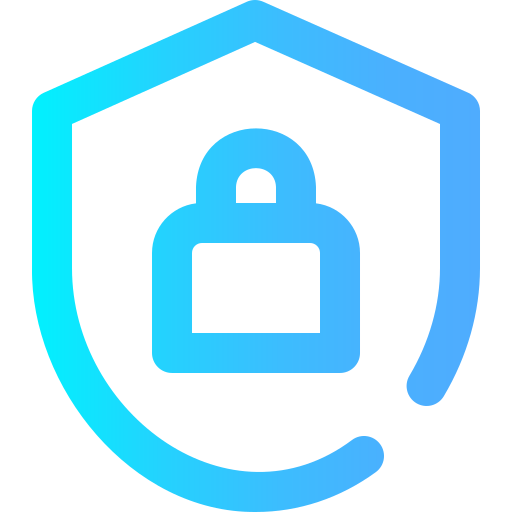Introduction
Ethical hacking, also known as penetration testing, plays a crucial role in identifying and addressing security vulnerabilities in computer systems and networks. To conduct effective ethical hacking assessments, security professionals rely on a variety of specialized tools. In this article, we’ll explore the top 10 ethical hacking tools that every security professional should be familiar with.
1. Metasploit Framework
Description: Metasploit Framework is a powerful open-source penetration testing platform that enables security professionals to develop, test, and execute exploits against remote targets. It includes a vast database of exploits, payloads, and auxiliary modules for various types of vulnerabilities.
Key Features:
- Exploit development and testing;
- Payload generation;
- Post-exploitation modules;
- Integration with other tools and frameworks.
2. Nmap (Network Mapper)
Description: Nmap is a versatile network scanning tool used to discover hosts and services on a computer network. It provides a wide range of scanning techniques, including port scanning, version detection, and OS fingerprinting, to gather information about target systems.
Key Features:
- Host discovery;
- Port scanning;
- Service enumeration;
- Scriptable interaction with target systems.
3. Wireshark
Description: Wireshark is a popular network protocol analyzer that allows security professionals to capture and analyze network traffic in real-time. It provides detailed insights into network communications, including packet captures, protocol decoding, and traffic analysis.
Key Features:
- Packet capture and analysis;
- Protocol decoding;
- Network troubleshooting;
- Support for multiple platforms and protocols.
4. Burp Suite
Description: Burp Suite is a comprehensive web application security testing toolkit used by security professionals to assess the security of web applications. It includes various tools for scanning, crawling, and testing web applications for vulnerabilities like SQL injection, cross-site scripting (XSS), and CSRF.
Key Features:
- Web vulnerability scanning;
- Proxy and intercepting proxy;
- Spidering and crawling;
- Intruder for automated attacks.
5. John the Ripper
Description: John the Ripper is a popular password cracking tool used by security professionals to audit password strength and recover lost or forgotten passwords. It supports various password cracking techniques, including dictionary attacks, brute-force attacks, and rainbow table attacks.
Key Features:
- Password hash cracking;
- Support for multiple hash types;
- Customizable rule-based password generation;
- GPU acceleration for faster cracking.
6. Aircrack-ng
Description: Aircrack-ng is a set of tools for assessing Wi-Fi network security. It includes tools for packet capture, packet injection, and password cracking, making it a valuable tool for security professionals conducting wireless penetration testing.
Key Features:
- Wi-Fi packet capture and analysis;
- WEP and WPA/WPA2-PSK cracking;
- Rogue access point detection;
- Live packet capture and injection.
7. Hydra
Description: Hydra is a fast and flexible password cracking tool that supports various protocols and services, including SSH, FTP, HTTP, and many others. It allows security professionals to perform brute-force attacks and dictionary attacks against login credentials.
Key Features:
- Support for multiple protocols and services;
- Parallelized attacks for faster cracking;
- Customizable attack parameters;
- Integration with other tools and scripts.
8. SQLMap
Description: SQLMap is an open-source penetration testing tool that automates the process of detecting and exploiting SQL injection vulnerabilities in web applications and databases. It provides powerful features for fingerprinting, enumerating, and dumping database contents.
Key Features:
- Automated SQL injection detection and exploitation;
- Support for multiple database management systems;
- Dumping database contents;
- Enumeration of database users and privileges.
9. Nikto
Description: Nikto is a web server vulnerability scanner that checks for common security issues in web servers and applications. It performs comprehensive tests for misconfigurations, outdated software, and known vulnerabilities, helping security professionals identify potential weaknesses.
Key Features:
- Web server scanning and fingerprinting;
- Detection of outdated software and insecure configurations;
- Vulnerability detection for common web server platforms;
- Reporting of security issues and recommendations.
10. THC-Hydra
Description: THC-Hydra is a fast and flexible password cracking tool that supports various protocols and services, including FTP, HTTP, SMTP, and many others. It enables security professionals to perform brute-force attacks and dictionary attacks against login credentials.
Key Features:
- Support for multiple protocols and services;
- Parallelized attacks for faster cracking;
- Customizable attack parameters;
- Integration with other tools and scripts.
Conclusion
Ethical hacking tools are essential for security professionals to effectively assess and mitigate security risks in computer systems and networks. The top 10 tools highlighted in this article provide a comprehensive toolkit for conducting penetration testing, vulnerability assessment, and security auditing. By mastering these tools, security professionals can enhance their skills and contribute to the overall security posture of organizations.

